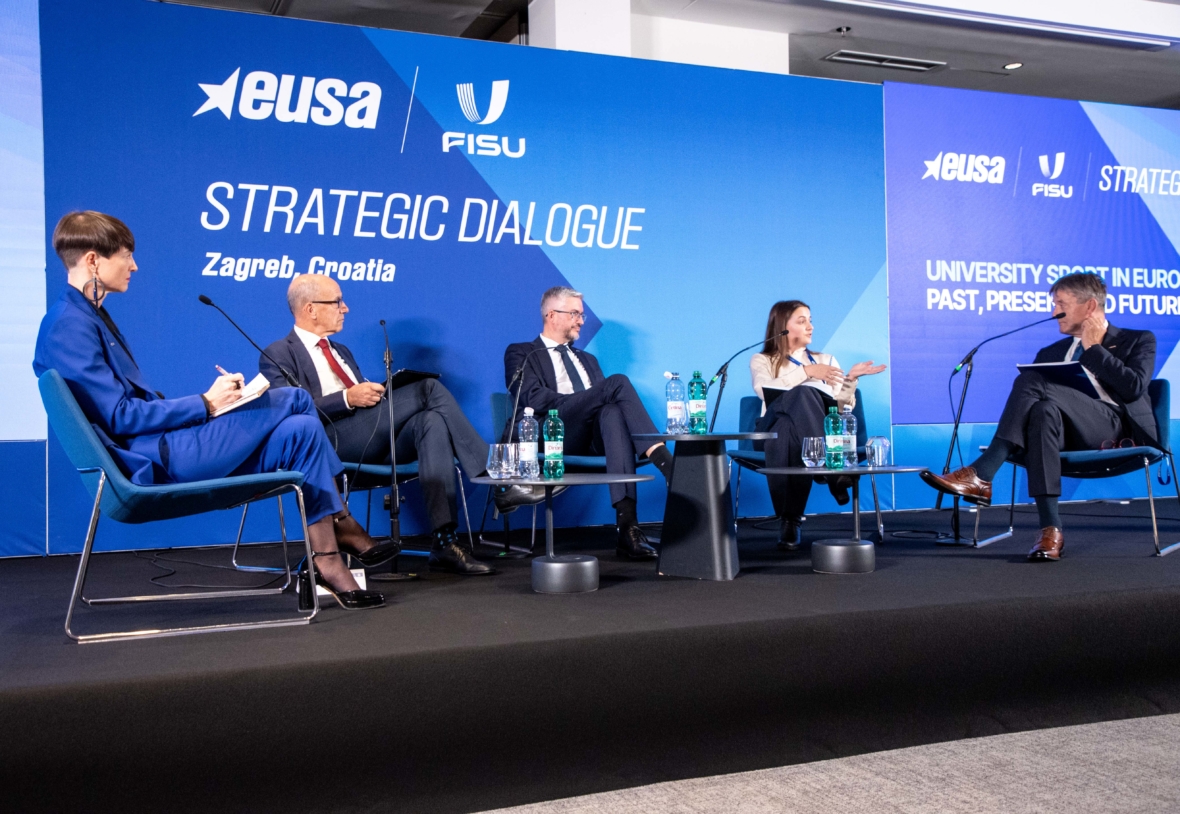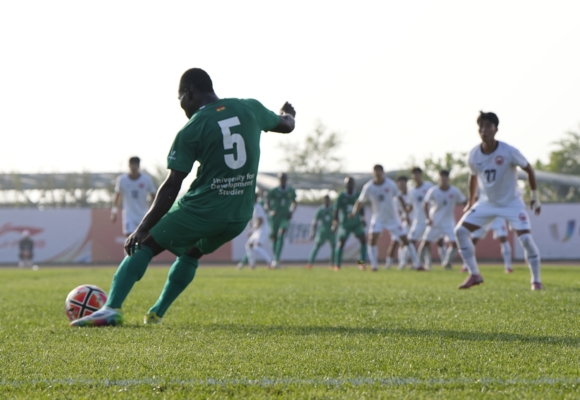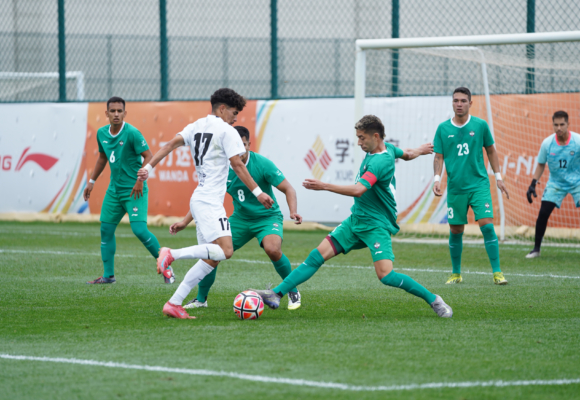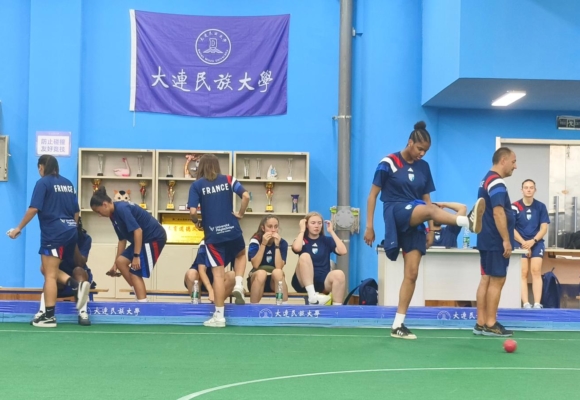Designed to empower university sport stakeholders across Europe, EUSA-FISU Strategic Dialogue took place on the first day of EUSA’s General Assembly in Zagreb.
The European University Sports Association (EUSA) General Assembly is taking place from 9-12 October in Zagreb, Croatia. This is the occasion for many meetings and exchanges between the European Continental University Sports Federation and the International University Sports Federation (FISU).
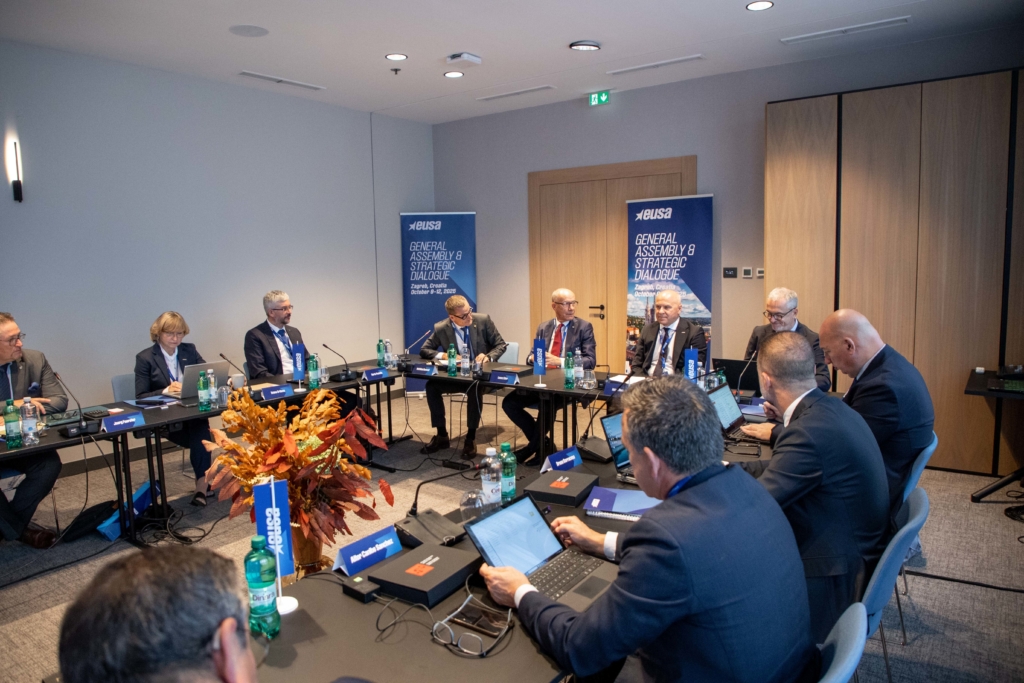
The event kicked off with the EUSA Executive Committee Meeting, that was attended by FISU President Leonz Eder and FISU Secretary General and CEO, Matthias Remund.
Leonz Eder underlined the status of EUSA as the most structured continental association, for its deep and detailed schedule of sports and educational events; while Matthias Remund confirmed his enthusiasm in getting to build an even better and operational cooperation with the European University Sports Association.
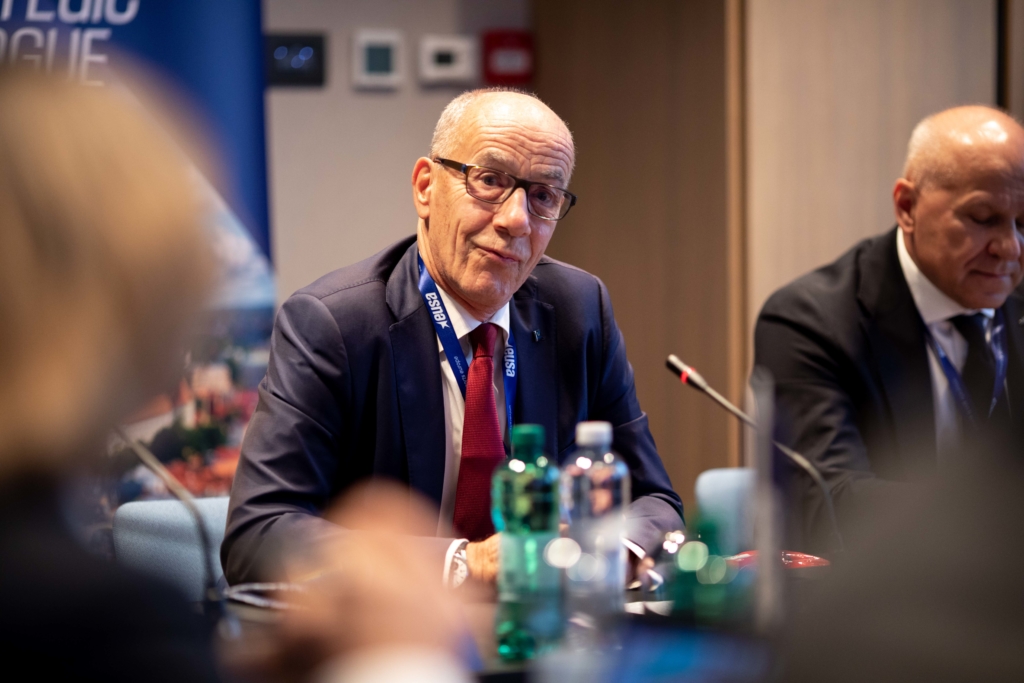
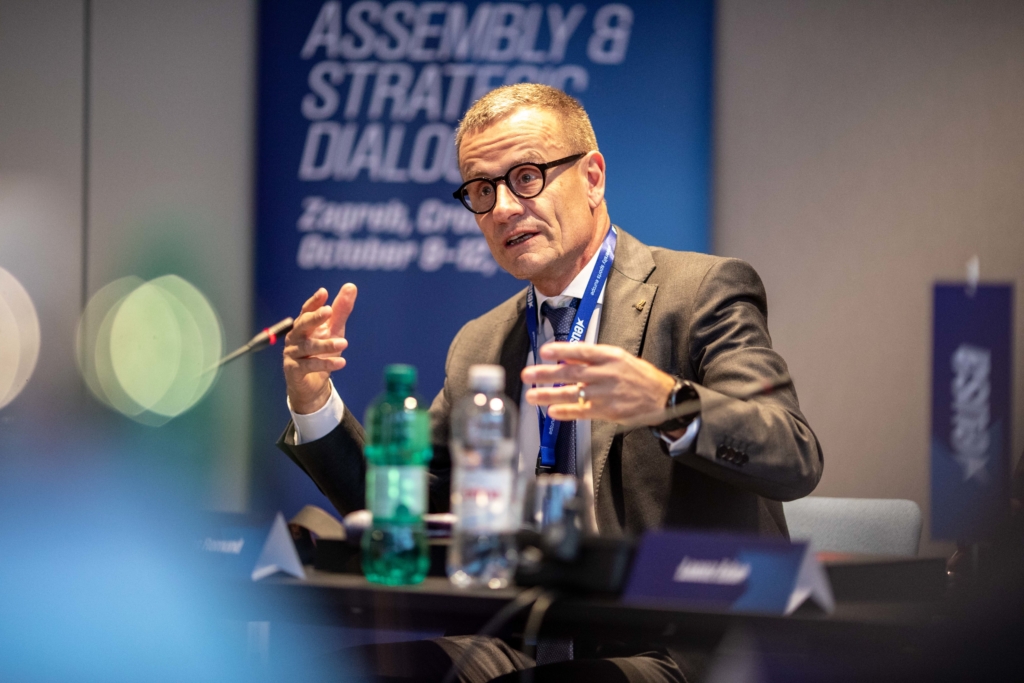
A truely inspiring Strategic Dialogue
In the afternoon, members of the worldwide university sports community came together for the Strategic Dialogue to review past achievements, evaluate the current landscape, and shape a vision for the future of student sports in Europe and beyond.

The EUSA-FISU Strategic Dialogue is designed to bring together, inspire, and empower university sport stakeholders across Europe, helping them better understand their needs and realities, and fostering effective collaboration for the advancement of university sport.
The Strategic Dialogue opened with a warm welcome on stage from Haris Pavletic, President of the Croatian Academic Sports Federation (CASF), Adam Roczek, President of the European University Sports Association (EUSA), and Leonz Eder, President of the International University Sports Federation (FISU).
Adam Roczek thanked the hosts for organising the event, as well FISU for the ongoing collaboration and support. He voiced hope that the panels and discussions would be engaging and inspiring for all.
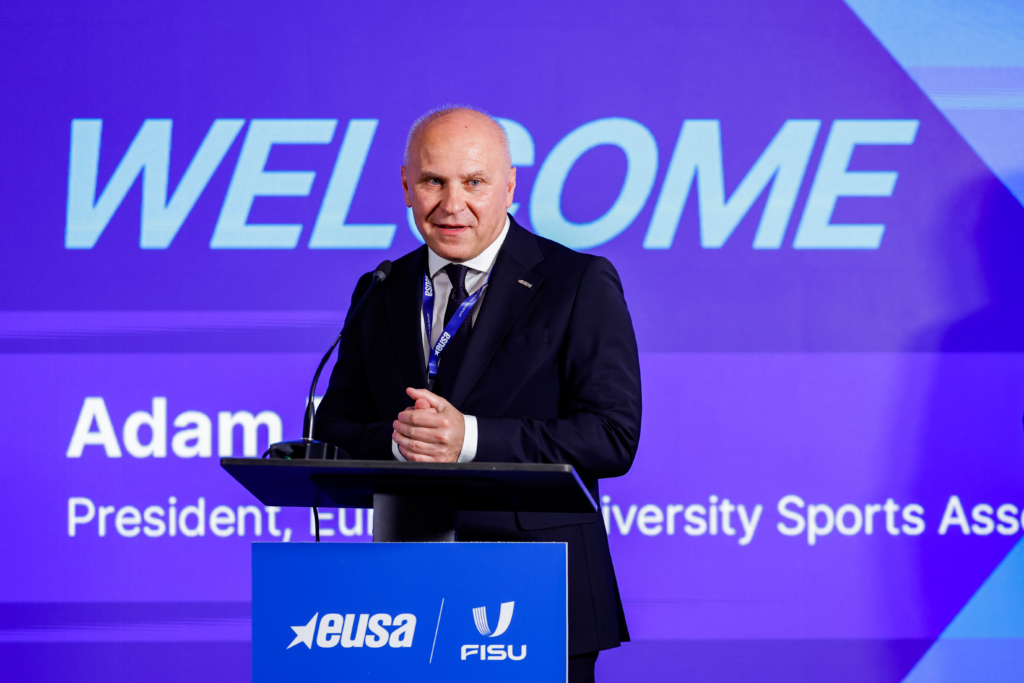
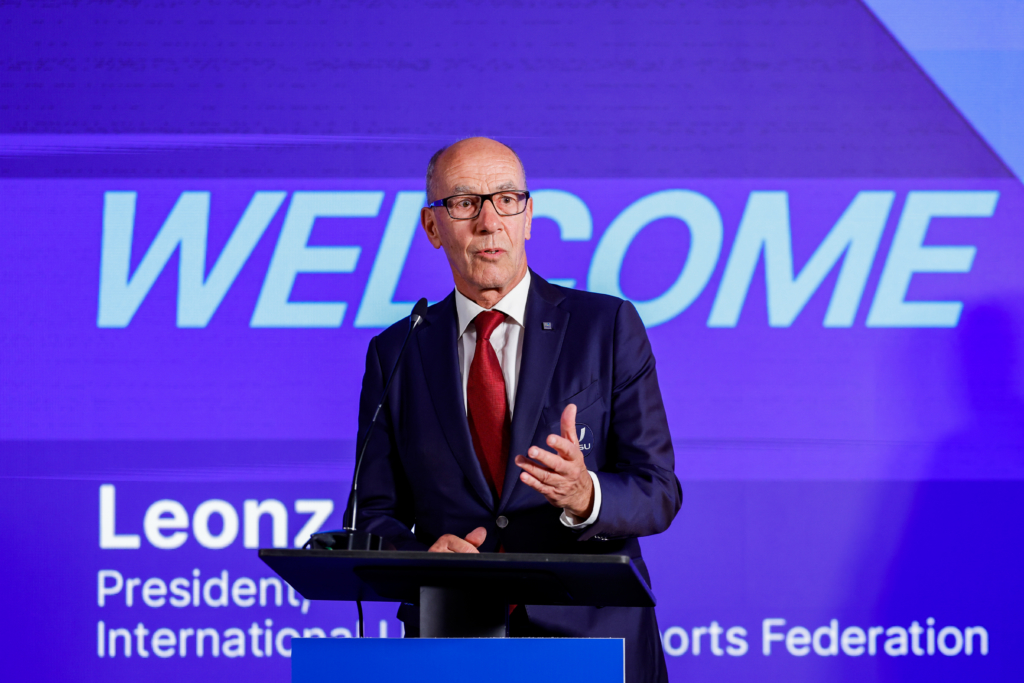
Leonz Eder highlighted the honour and pleasure of welcoming friends from across the continent, underlining that the Strategic Dialogue is not only a platform for exchanging ideas but also for learning from one another and shaping a brighter future together.
The first panel “University sport in Europe: past, present and future” focused on the evolution of university sport across the European continent, emphasising key achievements, current challenges, and future opportunities.
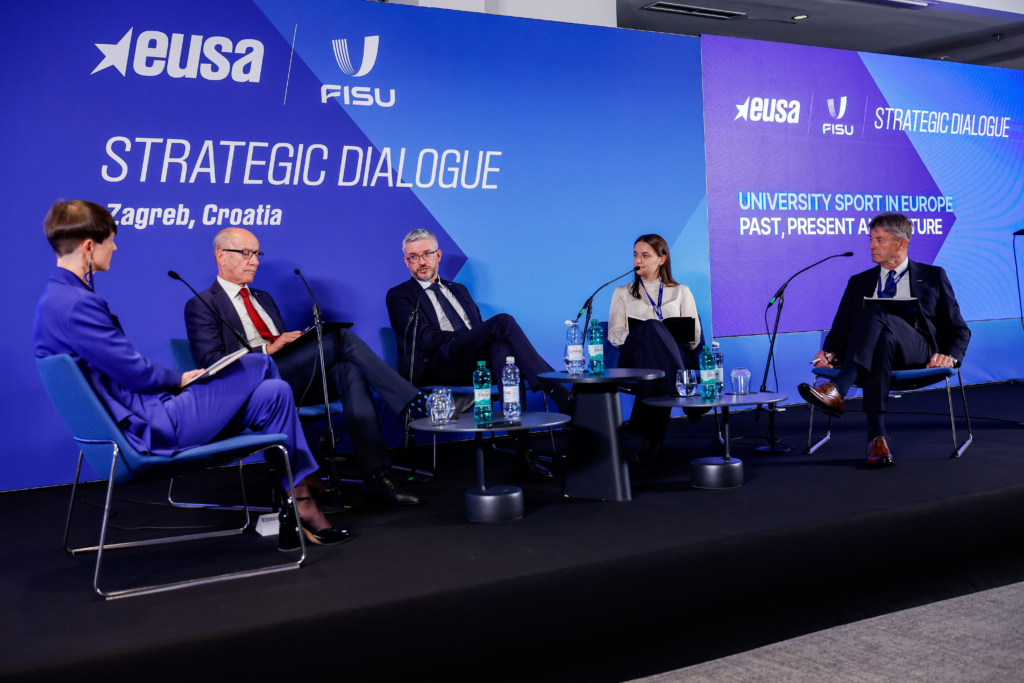

When asked, “FISU has a global perspective on university sport. From your viewpoint, what has been Europe’s greatest contribution to the international university sport movement?” Leonz Eder answered that EUSA has evolved into an exemplary continental association. He highlighted that it maintains close relationships with sports associations, political institutions, and academic bodies.
Haris Pavletic reflected on the strategic role EUSA can play in influencing how the European Union approaches university sport. He emphasised the need for projects that engage a large number of students in regular physical activity, not just those who compete at high level, and that promote exercise and healthy lifestyles among all students, including non-professional athletes.


Amelie Husby shared insights from the Norwegian model, stressing the importance of a “by and for the students” approach, encouraging cooperation between experienced and younger participants.
On the topic of what defines a truly “sport-friendly university” in today’s Europe? Milan Zvan explained that such universities are capable of helping students balance academics and sport, ensuring that athletes do not have to sacrifice their studies to compete at a high level. Sport-friendly universities provide access to top training facilities, medical and fitness support, and psychological assistance, allowing students to combine academic success with athletic development.

The second panel of the day “FISU and the continental federations: connecting ideas, creating impact” united voices from across different continents to share ideas and promote international cooperation.
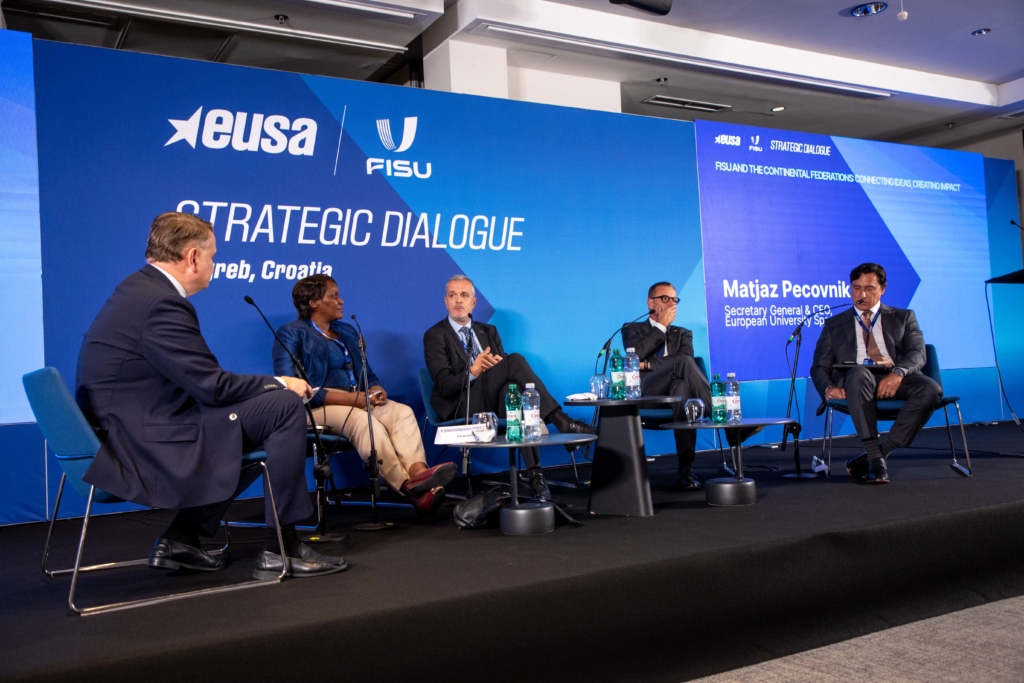
When discussing collaboration and partnerships, Matjaz Pecovnik highlighted EUSA’s development and solidarity programmes, noting that the association’s strength comes from the support of its diverse member federations. He emphasised the importance of assisting federations that encounter challenges in participating in university sports events, engaging with them directly to identify the most effective ways to help.


Speaking about challenges, Luciano Cabral elaborated on how challenges in continental federations are often similar across different regions, though they may manifest differently due to cultural contexts. In parts of the Americas, for example, authorities often prioritise elite or higher-education sports over university sport.
On the topic of the student role in developing university sports, Peninnah Kabenge highlighted the pivotal role of students in Africa, where they actively support and participate in the federation. She noted that a student representative is part of the executive committee and that the office is run by both volunteers and students.


To connect it all, Matthias Remund reflected on his colleagues’ comments, emphasising the need to support all continents by defining common goals for how FISU can assist continental federations. He highlighted the importance of setting clear directions while providing tailored support to individual federations in the most efficient way possible.
